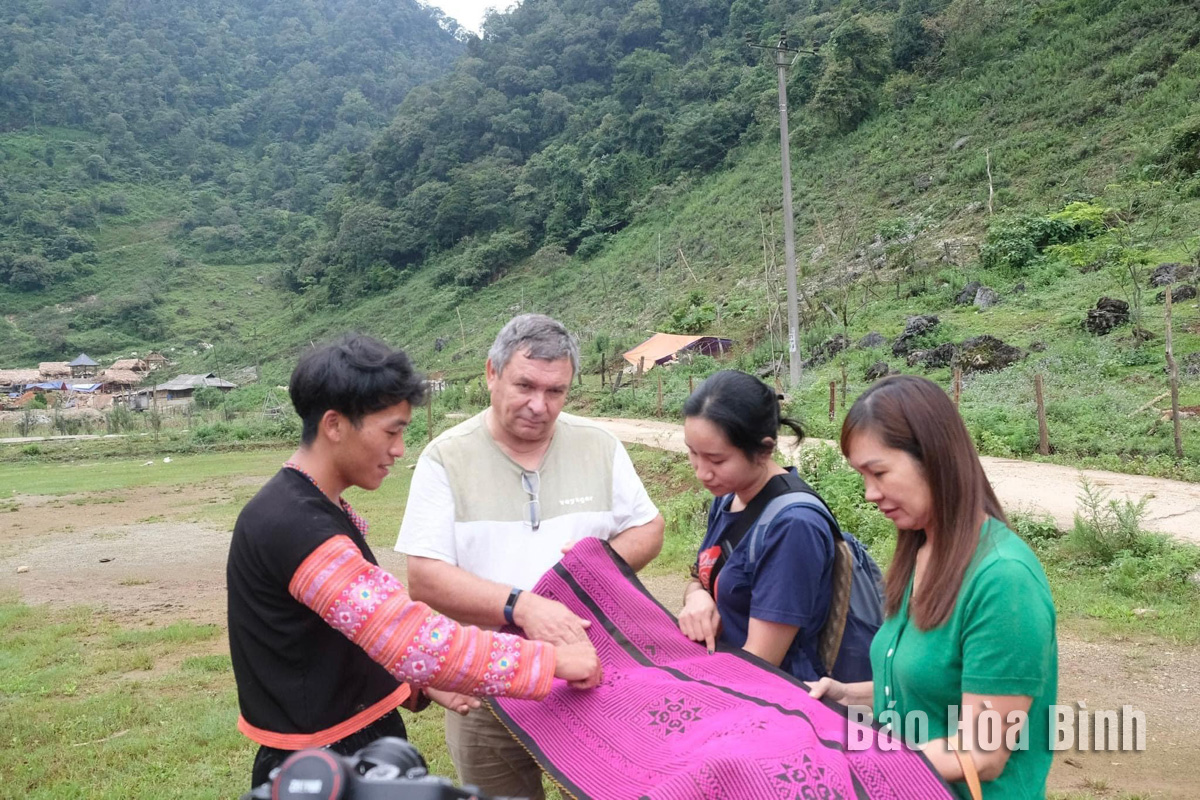
With numerous concerted and effective solutions, over the recent past, Hoa Binh province has actively supported and promoted the startup movement in ethnic minority areas, thereby spreading the spirit of self-reliance and resilience of local people in investing in building efficient livelihood models.
Giang A La (left) is one of the young pioneers in the startup movement in Hang Kia commune (Mai Chau).
Giang A La, a Mong ethnic man born and raised in Hang Kia commune (Mai Chau), left many impressions at the final round of the "2021 Business Initiative Challenge" competition with his friendly and likeable look and always full of energy. Not only did he bring creative startup ideas to the competition, Giang A La also brought ambition and desire to change the poor countryside where he lives. In June 2020, Hang Kia Agricultural and Tourism Service Cooperative was established, and 24-year-old Giang A La was the youngest member but entrusted to hold the position of its director. With two main professions of service business and agricultural production, cooperative members have taken the advantage of local potential and advantages to boost the development of community-based tourism and eco-tourism associated with activities to experience indigenous cultural identity such as beeswax painting and ‘banh day’ (round sticky rice cake) making. Agricultural products by locals are supported by the cooperative to be sold at tourism service establishments at stable prices. In addition, the cooperative creates jobs for local labourers with an average income of 4 - 5 million VND (157-196.4 USD)/person/month.
Giang A La shared that during the start-up process, the cooperative has received support, advice, and direction from the local Party Committees and authorities to increase the value of typical local agricultural products.
According to preliminary statistics, the province currently has over 680 economic models owned by youths, of which the majority are led by young ethnic minorities; and nearly 400 are in the field of agriculture and forestry. These models create jobs for nearly 1,000 youth union members and young people.
Over the recent years, Hoa Binh has stepped up information and dissemination activities to raise awareness and entrepreneurial spirit in ethnic minority areas, especially among young people. Activities to support and encourage start-ups have been implemented by all levels, sectors and localities in different fields. Attention has been paid to calling on businesses and investors to support and develop startup ideas of young people. This is an important premise to develop start-up models in the locality.
Currently, the provincial Party Committee and authorities, especially the Committee for Ethnic Minorities Affairs, are accelerating the progress of implementing contents and projects under the national target programme for socio-economic development of ethnic minority and mountainous areas for the 2021 – 2025 period, including increasing support for production and production chain development, projects and models; along with investment in developing medicinal growing areas.
In Lac Thuy district, communes have been succeeded in promoting their One Commune-One Product (OCOP) products while others are still struggling to position their typical farming products in market. Some communes in the district still fail to have their products met OCOP programme’s requirements, while others have seen their certifications expired.
The inspectorate agency of Hoa Binh province has issued Official Dispatch No. 1090/TTr-PCTN to provincial departments, agencies, localities, business associations, enterprises, and investors regarding measures to improve informal component indexes of the Provincial Competitiveness Index (PCI).
Hoa Binh is taking concrete steps to improve its investment environment, with a strong focus on supporting businesses, settling obstacles for strategic investors, and creating opportunities for robust development in the coming years.
Under the blazing early summer sun, the construction site of Nhuan Trach Industrial Park (IP) in Luong Son district is abuzz with activities from dawn to dusk, a testament to the determination of the investor to meet their construction targets on schedule.



